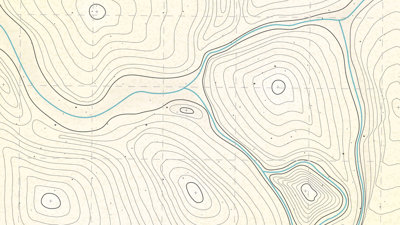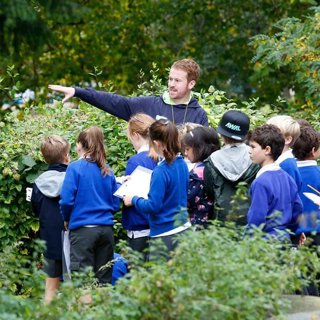How did you get to where you are now?
As a teenager, I spent six summer seasons working with tourists in a show-cave. I loved giving the guided tours, and started looking for ways to adapt this into a career. I trained as a secondary school geography teacher after university, and completed the PGCE year but didn’t go into teaching. I didn’t feel ready for it at the time, so took a year out and then got some entry level work in the type of institutions I was interested in – I was a shop assistant in the British Museum, did a few days of casual work at the Natural History Museum, and was a visitor services team member at an English Heritage property.
These roles gave me an insight into how they worked as organisations, and led to me joining the Science Museum Learning team, where I spent over six years working on the galleries and representing the museum around the country. I eventually left the Science Museum to manage a UK-wide robotics-based programme for children. I learned a lot from this experience, worked with some amazing people, and enjoyed the travel, but it made me realise that my passion was in introducing people to a particular place. My role with The Royal Parks allows me to do this and includes the best bits of all my previous work.
What do you do as part of your role?
I coordinate school and community programmes in Hyde Park, Kensington Gardens and St James’s Park. This includes school sessions for all age groups, family activities in the holidays, walking tours for adults and targeted community engagement. I line manage a team of four people who deliver these programmes. There’s a huge amount of variety to the work, both in the types of activities we’re running and the way the parks change throughout the year.
What skills and characteristics do you need for this role, apart from geographical knowledge?
You need a mixture of practical and creative thinking - communication, empathy, an open mind, analytical skills and problem solving.
How does geography feature in your work/what difference does it make?
Virtually everything we do here relates to the interaction between people and the parks – their landscapes, nature and heritage. Specific geography sessions are part of our schools’ programme, but I use the skills I learnt through my geography degree every day in order to keep up with what’s going on in the park, and when working on developing our programmes with my colleagues.
What do you enjoy most about your job?
Variety and getting to work with people who are experts in their fields, this constantly gives me the opportunity to learn new things. I’m also incredibly lucky to work in such a beautiful place, and sharing different aspects of the parks with our visitors is always fun and rewarding.
What advice would you give to someone wanting to go in to this career?
Make it a hobby before you try and work in it. The key things we look for when we’re recruiting are a knowledge of the natural environment and presentation/communication skills. So I’d suggest taking any opportunity to learn about, volunteer and get work experience in these areas. If you know you want to work in a specific place, learn as much as you can about that place and make sure your knowledge and enthusiasm for it comes over when you come to apply for a job.
Why did you choose geography? Why should others choose geography?
Getting a better understanding of how people interact with their environments, at different scales and under different circumstances, seemed like an essential thing to study to me – as time goes by I think it’s only becoming more so.
* This interview was undertaken in 2020 and was correct at the time of publication. Please note that the featured individual may no longer be in role, but the profile has been kept for career pathway and informational purposes.

